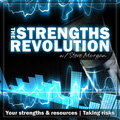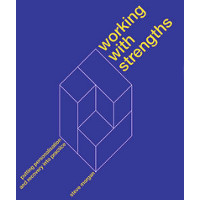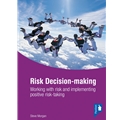Developing your key staff
The managers of the teams who directly deliver services to service users and carers in health and social care organisations are in a pivotal role for influencing the success of an organisation. They are the people who manage the demands of the teams they are charged to lead, and the expectations of the organisation’s management structure. The quality of support and development offered to these people is critical to their morale and motivation in the job.
The Practice Based Evidence consultancy for mental health services has developed a programme based in a ‘Strengths Approach’ and the extensive strengths business research of the Gallup organisation, specifically focused on this group of key staff.
In discussion with the programme’s author, Hugh Griffiths (Deputy National Clinical Director for Mental Health, Department of Health) expressed the view that “it is very important to focus attention on developing the needs of the clinical team leaders and managers.”
This programme is now recognised through its inclusion on the CSIP ‘New Ways of Working’ website as a resource for organisation’s to consider as an option for the development of Team Managers/Leaders.
In an initial trial of the programme structure and content the following comments were made:
“This is a very practical programme that gives tools to help me understand and lead the team. It applies to the real situation I work in, and ties in closely to how I feel and what I need.” Sue Jugon (Assertive Outreach Team Manager).
“This is so different from any other management courses or approaches I have experienced. It is focused very much on personal reflection from a very positive perspective.” Geoffrey Smith (CMHT Manager).
“This programme meets the needs of team managers, and is full of very challenging exercises.” Kirt Hunte (CRHT Manager).
The following linked pages outline the structure, content, delivery and intended outcomes of the programme. Contact Steve Morgan if you wish to consider commissioning such a programme of development in your organisation.
Team Managers/Leaders Programme.
Responses to Questions.
Relevant C.V. for facilitating the programme
- Working with a ‘strengths approach’ since 1991
- Writing textbooks, articles and materials incorporating strengths working since 1993
- Training in strengths since 1995
- Strengths practice within team development since 2001
- Mentoring from a strengths perspective since 2001
- Conference presentations on aspects of strengths working since 2003
- Personal development through textbooks and online resources since 2003
 Monday, December 19, 2011 at 12:22PM
Monday, December 19, 2011 at 12:22PM 





